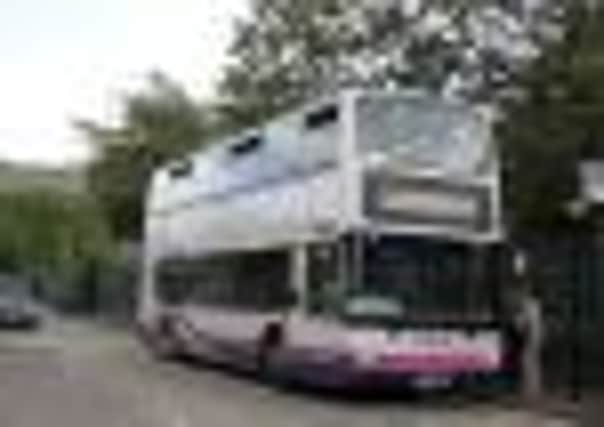Iain Gray: Get on board with fight for better bus services


No surprise then, that when I announced last week that I plan to introduce a Private Members Bill in parliament, it is a Bill to improve bus services.
This law would give local councils new powers to control bus services in their area, if they wanted to. They could bundle bus routes together and then enter a contract with a bus operator to run them for a fixed period. That would mean that the bus company would get to run the attractive, profitable routes, but in return they would also have to operate some other services, for example through a housing scheme, which make less money but which people really need.
Advertisement
Hide AdAdvertisement
Hide AdThe Bill would also give more control over timetables and fares. Passengers could have confidence that timetables and fares would not suddenly change, and buses would be a more attractive option for them.
Edinburgh has a very good bus network, probably the best in Scotland. Even there, though, colleagues like Sarah Boyack MSP have had to campaign for better routes to hospitals and to outlying communities like Kirkliston and Queensferry. But you do not have to go far from the city to see a bleaker picture. Last year, in East Lothian, First Bus simply cancelled most of its bus routes. In Midlothian it axed them all, paying off 200 staff. Communities like Pencaitland and Ormiston faced life with no public transport at all.
These were the very routes I used to work on as a bus conductor for Eastern Scottish. I remember being sent out one day on a duplicate service to North Berwick because the service bus was full before it even left St Andrew Square. At Longniddry, I asked the passengers to transfer to the bus behind, which had space by then. One passenger refused to move. Eventually my driver came down to see what the hold-up was. “It says North Berwick on the front of the bus,” said the passenger, “and that’s where I am going.” Quick as a flash, the driver replied, “It says India on my tyres, pal, and I’m not going there either.”
The serious point is that these routes were so busy extra buses had to be put on every day. The same was true of journeys to Balerno, Penicuik and Dunbar. These bus routes were regular, reliable and very busy. They made a good profit for the publicly- owned bus companies of the day. So what happened?
Conductors were abolished and journeys got slower. Then the companies and routes were privatised, broken up and sold off. We had the “bus wars” in Lothian. Timetables and fares changed constantly. While main routes were clogged with buses, they disappeared from housing estates, so older passengers could not reach them. Vehicles got older, and broke down more. Commuters found other ways to get to work.
There are still five times more bus journeys than rail journeys in Scotland today. Yet politicians have paid far more attention to trains. The Scottish Government puts over twice as much money into railways, compared to buses. Rail budgets increase every year, but the main bus subsidy has been cut by 20 per cent. Now ministers are trying to cut the money they pay bus companies for carrying bus pass holders to less than 60p per journey. Operators say that is not enough, and everyone else’s fares will go up as a result.
Lothian Buses is still council-owned, and it manages to run a proper network of services with good buses and a flat fare structure. It stepped in to serve my constituents when First walked away. We cannot buy back the bus companies, but we can take back some control and require them to run a local bus network, not just pick and choose their routes.
Ten years ago I was Transport Minister and I introduced the concessionary bus pass. But a bus pass is no use if you do not have a bus to use it on. We must act to halt the decline of bus services, and that is what my Bill aims to do.
• Iain Gray is an MSP for East Lothian
Driving forward change
Advertisement
Hide AdAdvertisement
Hide AdNew legislation launched by Scottish Labour is designed to improve services and increase passenger numbers.
Options could include “franchising” local bus networks such as trains, with operators forced to agree to minimum service and quality levels.
Bus operators currently decide when and where they run, receiving subsidies from local authorities for services seen as socially important.
By contrast, the ScotRail train operating franchise, currently held by Aberdeen-based FirstGroup, involves ministers setting service levels in return for subsidies.
The Bill would give councils the power to “bundle” both profitable and loss-making bus routes together, with firms competing for the contract, or franchise.
This would specify routes, fares and bus quality, and include performance monitoring.
Transport Scotland said: “We are interested in any proposals for change.”